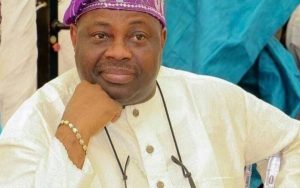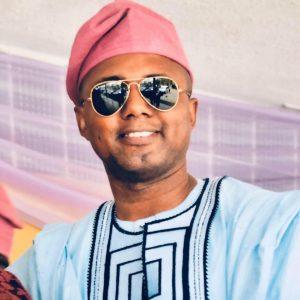Like many other professionals, I had always been a creature of habit, a slave to the snooze button every morning. The idea of starting my day when most people were still deep in their dreams seemed like an alien concept. But after reading countless articles about the benefits of rising early — from increased productivity to a greater sense of tranquility — I decided to take the plunge and wake up at 5 AM every day for a week.
This life change was not easy. Trading warm sheets for cold coffee at an hour when even the sun had yet to greet the world felt like a cruel joke. But I was determined to see if I could harness these quiet hours and boost my productivity levels.
Fuelled with curiosity and countless cups of coffee, I started my experiment. The world was surprisingly quiet at this hour — no emails, no phone calls, just the sound of my thoughts and the faint chirping of birds outside my window.
Initially, it felt like I had stumbled into an alternate reality. One where time seemed to stretch endlessly before me, allowing me to accomplish more before breakfast than I used to in an entire day. But soon enough, I started noticing subtle shifts in my routine, my mood, and most importantly, my work output.
But would this seemingly drastic lifestyle change truly make a difference in my productivity? Or would it simply make me an under-caffeinated, overworked zombie? As an experiment, it was intriguing; as a potential lifestyle change, it was daunting. Here’s what happened when I traded late-night Netflix for early morning spreadsheets for one whole week.
The first days of my 5 AM routine
The initial days were, quite frankly, a struggle. I had underestimated how difficult it would be to pull myself out of bed at such an early hour. The darkness outside felt oppressive and my body protested against the abrupt change in routine.
But I persevered. My first task each morning was to drink a cup of coffee and jot down my daily goals. This simple act of writing gave me clarity and direction for the day ahead.
As the week progressed, I noticed that I was completing my tasks faster and with more focus. The quietness of the early morning provided a distraction-free environment where I could immerse myself fully in whatever task I was tackling.

By the time my colleagues started their workday, I had already accomplished a significant portion of mine. It was an empowering feeling, being ahead of the game.
But along with this newfound productivity, there were also downsides. By mid-afternoon, my energy levels would dip drastically, and by evening I was ready to crash. The early wake-up time had definitely taken its toll.
Many people believe that rising early automatically leads to increased productivity. While it did enhance my work output, it’s not a one-size-fits-all solution.
Challenging the early bird narrative
The commonly held belief is “the early bird catches the worm”. We’re often told that waking up early is the key to success and productivity. But my experience presented a different reality.
Yes, I was more productive in the mornings, but this came at a cost. My afternoons were sluggish, and my evenings were almost non-existent. Barely staying awake past dinner was not a sustainable lifestyle for me.
I realized that waking up at 5 AM didn’t magically give me more hours in the day. Instead, it merely shifted my productive hours to an earlier time slot. I was no longer burning the midnight oil; I was burning the dawn oil instead.
This experience led me to question the universal applicability of the early bird mantra. What works for one person might not work for another. Our productivity is influenced by numerous factors — from our internal body clock to our personal and professional commitments.
In the next section, I’ll share how I negotiated with this challenging schedule and found a middle ground that worked for me — a balance between waking up early and maintaining energy throughout the day.
Finding my balance
Taking a step back, I realized that a rigid 5 AM wake-up schedule wasn’t the answer for me. Instead, I needed to find a rhythm that catered to my own energy peaks and valleys throughout the day.
I started by adjusting my wake-up time slightly later, to 6 AM. This extra hour of sleep made a significant difference in my energy levels in the afternoon and evening.
Next, I incorporated short breaks throughout my day. These allowed me to recharge and prevented the mid-afternoon slump that I’d been experiencing. A short walk outdoors or a few minutes of meditation became my go-to activities during these breaks.
Most importantly, I learned to listen to my body. On days when I felt particularly drained, I allowed myself a bit more sleep in the morning or a power nap in the afternoon.
If you’re considering waking up early to boost productivity, remember that it’s not about strictly adhering to a 5 AM alarm. It’s about finding the schedule that works best for you and allows you to be productive without sacrificing your health or wellbeing. The key is balance and flexibility.
Stepping back and reassessing
My journey with waking up at 5 AM every day was not just a shift in my sleep cycle. It was an exploration into understanding my own productivity patterns and, more importantly, a lesson in personal responsibility and self-awareness.
I learned that I couldn’t blindly follow a societal narrative of ‘early to rise’. Instead, I had to take responsibility for my own well-being and create a routine that worked for me.
In this process, I discovered the importance of:
- Taking personal responsibility for my productivity.
- Breaking free from societal expectations about ‘ideal’ work hours.
- Understanding my own unique work rhythm and energy levels.
- Embracing flexibility and balance in my daily routine.
None of these realizations would have been possible if I hadn’t taken the initiative to step back and question the norms.
No matter what challenge you’re facing, remember that it’s essential to understand your unique circumstances, needs, and desires. Avoid getting swayed by external influences or societal conditioning. Instead, align your decisions with what truly resonates with you.
In the end, it’s about embracing the journey of self-exploration to reshape your reality. Rather than striving for blind positivity, face your challenges head-on, learn from them, and use them as stepping stones towards self-improvement.
Hackspirit.com






















